Portuguese football has provided some of the most talented and beloved midfielders in the history of the game. For the past eighty years, they were seen as a reflection of how the game was played in the domestic league, and once they crossed the border to become international stars, Portuguese midfielders’ popularity worldwide never ceased to increase.
In a nation that values show, grit, and technique, they provide flair, intelligence, and sensibility to read between the lines, making every clock tick. The list of top-class midfielders is bottomless, but ten names can claim to fly above all others. Whether they served as decisive holding midfielders, creative forces of nature or simply forwards disguised as midfield maestros, they are the backbone of Portuguese football history.
***
António Oliveira (24 caps)
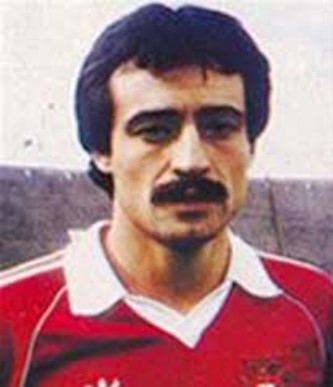 During the 1970s, he was Portugal’s wonderboy, a player so gifted everyone would imagine he was bound for greatness from the first time he set foot on the turf of the FC Porto’s Estádio das Antas pitch. Clever on the ball, able to score from range or through his trademark free-kicks, Oliveira was one of the most talented footballers ever to be born in Portugal. From Penafiel, up north, he made himself known in Porto’s youth academy before debuting with the first squad aged only 18. He spent the whole decade at the club, living the worst and best years of the Dragons in equal share. Pedroto made him the star figure of his side, and his advanced playmaker quality guided the Azuis e Brancos to two consecutive league wins.
During the 1970s, he was Portugal’s wonderboy, a player so gifted everyone would imagine he was bound for greatness from the first time he set foot on the turf of the FC Porto’s Estádio das Antas pitch. Clever on the ball, able to score from range or through his trademark free-kicks, Oliveira was one of the most talented footballers ever to be born in Portugal. From Penafiel, up north, he made himself known in Porto’s youth academy before debuting with the first squad aged only 18. He spent the whole decade at the club, living the worst and best years of the Dragons in equal share. Pedroto made him the star figure of his side, and his advanced playmaker quality guided the Azuis e Brancos to two consecutive league wins.
After a brief and disastrous spell at Seville, where his homesickness got the better of him, Oliveira returned home only to leave Porto again when Pedroto was sacked. He moved first to his hometown club of Penafiel and then had a last hurrah with Sporting, clinching his third league title in 1982. What he never managed to collect was praise for his international displays, as he, alongside many others, lived the worst years of Portugal´s international side and was left out of the squad for Euro 84, despite having played in the qualifying rounds. He was later successful as a manager and became a well-known businessman, traits that had some forget just how good a footballer he was back in the seventies.
Mário Coluna (57 caps)
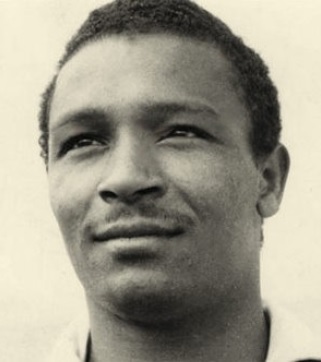 Coluna should rank at the very top of every list of the best Portuguese footballers of all time. When the nation was still regarded as second-class in the eyes of the world, he was already being tipped as one of the best in the world. Born in Mozambique, he began his career as a promising striker and was signed by Benfica at an early age to be the leading man in their attacking line, which he delivered, striking a decisive partnership with José Águas. Bela Gutmann benefited greatly from it as he leaned on both to guide the Eagles to their first European Cup trophy in 1961, with Coluna bossing the decisive match against Barcelona by dropping regularly to the midfield.
Coluna should rank at the very top of every list of the best Portuguese footballers of all time. When the nation was still regarded as second-class in the eyes of the world, he was already being tipped as one of the best in the world. Born in Mozambique, he began his career as a promising striker and was signed by Benfica at an early age to be the leading man in their attacking line, which he delivered, striking a decisive partnership with José Águas. Bela Gutmann benefited greatly from it as he leaned on both to guide the Eagles to their first European Cup trophy in 1961, with Coluna bossing the decisive match against Barcelona by dropping regularly to the midfield.
A few weeks later, the arrival of the young prodigy that was Eusébio finally transformed the influential captain into a de facto midfielder, and for almost a decade he made himself known as a world-class player behind the young Black Panther. He never lost his goalscoring ability, but it was his tactical acumen that was a key component behind Benfica’s golden era, with another European Cup in the bag in 1962, followed by three other finals before he then moved, already a veteran, to France for a short stint in Lyon. By then, he was already a global star, helped also by his brilliant performance during the 1966 World Cup with Portugal finishing a much-deserved third. Coluna set the standard for everything a midfielder should be in his time and left a legacy that found worthy heirs in the likes of Toni, Rui Costa or Bernardo Silva in the Benfica DNA.
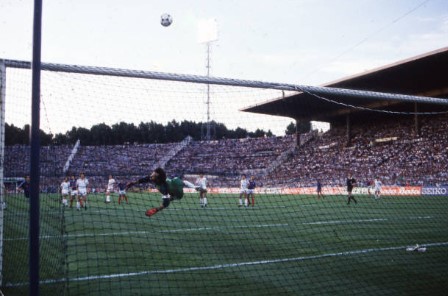 |
Paulo Sousa (51 caps)
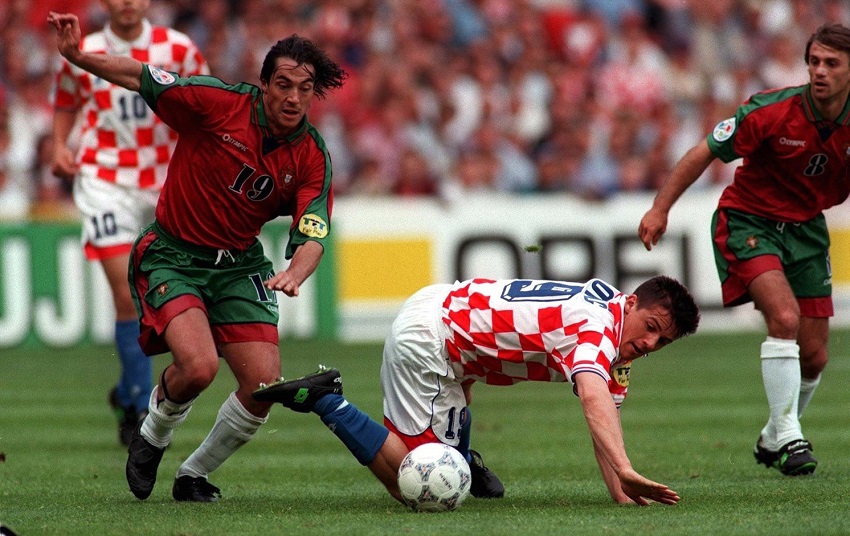
You can’t win back-to-back Champions League titles with two different sides if you’re not a special player. And Paulo Sousa definitely was. If it weren’t for the recurrent injuries in the later stage of his career, we would probably be talking about one of the key footballers of the 1990s. An under-20 world champion, part of Portugal’s Golden Generation from the start, Sousa also became the first Portuguese midfielder to actually make a name for himself on the international stage as well. He began his sporting career with Benfica, earning himself a place in a talented, crowded midfield by simply being better than anyone else. He guided the club to the Champions League group stage, famously played as a goalkeeper in the final minutes of a decisive title match against Boavista, and then in 1993 did the most unexpected thing, leaving the Ealges for their city rivals Sporting.
At Alvalade, he was never as loved or as successful as he had been at the old Da Luz ground, and soon he left for Italy, where he rocked up in one of the most powerful sides in the history of the game, Marcelo Lippi’s Juventus. His tactical clarity allowed the Vechia Signora to claim only their second Champions League trophy, but the signing of Zinedine Zidane forced him to move elsewhere. He chose Dortmund and did so wisely as he fitted like a glove in the Ottmar Hitzfeld squad and was key to their Champions League success in a final played against his old side, Juventus. By then, he was already the midfield boss of Portugal, playing at Euro 96, but then a series of injuries cut short his career. He played only around fifty professional matches over the next four years. Despite that, his untarnished prestige in Portugal saw him called up for Euro 2000 and the 2002 World Cup, but he was rarely an option. Still, he remains rightly revered as one of the greatest midfielders ever to grace the game.
João Moutinho (146 caps)
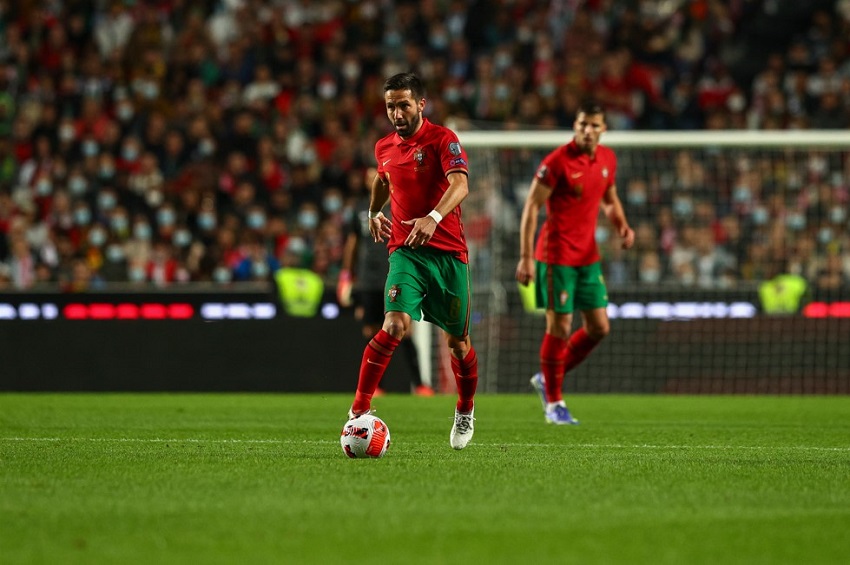
When Pep Guardiola’s Barcelona were ruling the world in one of the most memorable midfield trios you could think of, people were questioning what sort of player was good enough to make the squad. Time and time again, the name of João Moutinho topped the charts, and there’s probably no better definition of how good a midfielder he was. He probably didn’t have the career his talent deserved, as he never moved to high-profile clubs, instead following the trend of institutions closely connected with his agent of the time, but don’t kid yourself. Moutinho was up there with all the names that made the 2010s one of the greatest decades for midfielders.
A Sporting graduate, he was promoted by Paulo Bento to the Lions’ first squad and became the general of a young, ambitious side that never quite made it in the end. He rocked into Portugal’s midfield at a very young age, playing at Euro 2008, but then suffered the consequences of his move to Porto, skipping the 2010 World Cup. Sporting fans never forgave him the betrayal, but those at the Estádio do Dragão embraced him as a prodigal son, and he delivered by guiding the side to a historic Treble in 2011 that included a win in the Europa League final, followed by two more league trophies. He then moved to AS Monaco and, alongside Radamel Falcao and a young Kylian Mbappé, took the Riviera side to glory in the Ligue 1 and to deep runs in the Champions League.
Every club in the world was interested in his services by then, but he chose to move to Wolverhampton Wanderers, where he became a stalwart and club legend for a side that he helped qualify for European football again after decades in the lower leagues. His return to Braga proved that he was still able to perform, but it is his stint with the national side, particularly during the winning Euro 2016 campaign, that resonates as he was able to patrol the pitch like no other in the titanic journey of Fernando Santos’ squad to a glorious finale in Paris.
José Travassos (35 caps)
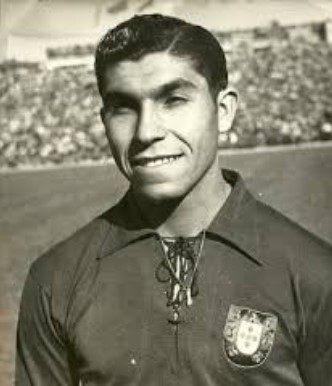 Fernando Peyroteo was the most famous player of the so-called Cinco Violinos attacking unit of Sporting’s golden era of the 1940s, but it was José Travassos who made everything tick with his striking ability to turn and pass at the right time. He was so popular that, at a time when Portuguese football was considered second-rate in Europe, he was still called up for a World XI that beat England in a celebration match played in Belfast. He even helped by assisting twice for the win, which in turn earned him the tag, “Zé da Europa” for the rest of his career.
Fernando Peyroteo was the most famous player of the so-called Cinco Violinos attacking unit of Sporting’s golden era of the 1940s, but it was José Travassos who made everything tick with his striking ability to turn and pass at the right time. He was so popular that, at a time when Portuguese football was considered second-rate in Europe, he was still called up for a World XI that beat England in a celebration match played in Belfast. He even helped by assisting twice for the win, which in turn earned him the tag, “Zé da Europa” for the rest of his career.
Travassos began playing for CUF but at a very early age joined Sporting, where he played as an inside forward, although in that 2-3-5 tactical system, he usually patrolled the midfield while helping out his famous four attacking partners with key assists, even if he was also a talented goalscorer himself. Travassos played for the Lions for 13 years, through the club’s most memorable period, and he was also a key element in the Portuguese national side of the day, although they never achieved any international recognition at the time.
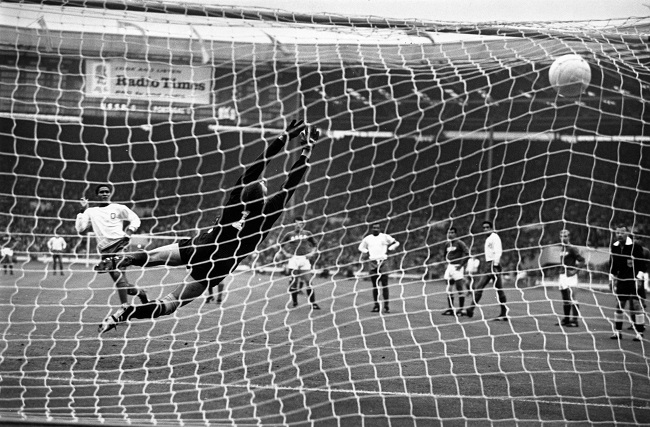 |
Oceano Cruz (54 caps)
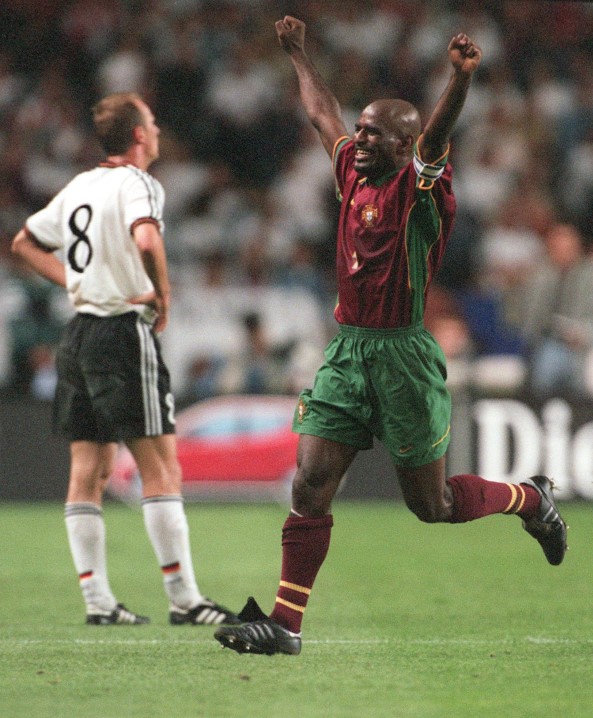
A towering force in midfield, Oceano was a stalwart holding midfielder who, for a decade, became a symbol of the transition of Portuguese football from the troubled 1980s to the Golden Generation period. A skilled and enthusiastic leader on and off the pitch, Oceano shone as a Sporting player in two different spells and is still revered in San Sebastián as one of the best foreign players to have graced the Real Sociedad shirt.
Son of the African immigration movement that followed the Carnation Revolution, he played during seven commanding seasons for Sporting. He then became a key player for the national side after the 1986 World Cup campaign, playing at Euro 96. Although Oceano never managed to win the league with the Lions – he arrived two seasons after the 1982 title and moved two years before they put an end to almost two decades of hurt – he is still fondly remembered at Alvalade as one of the club’s greats.
Deco (75 caps)
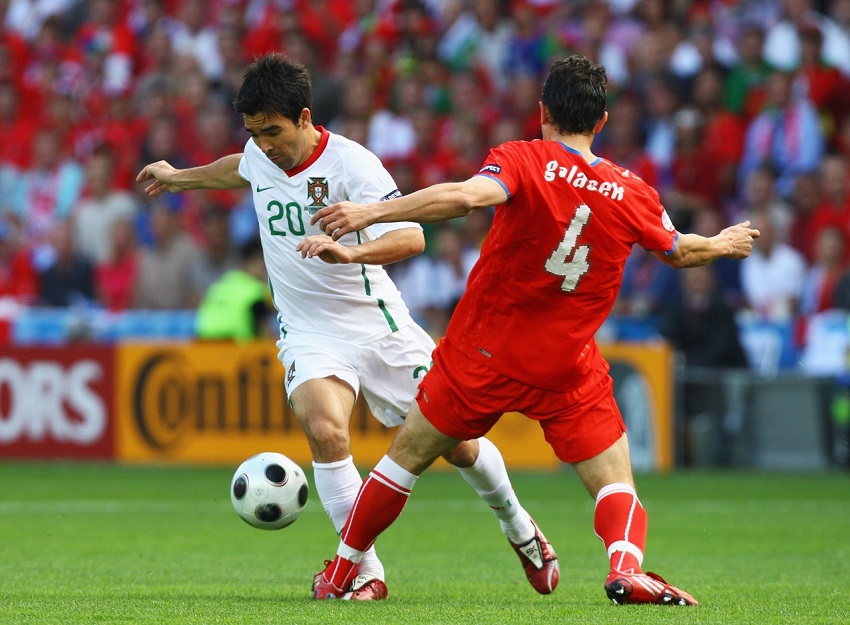
It’s odd that one of the greatest midfielders ever in the history of Portuguese football is a player naturalised, but Deco was always one of a kind. He adopted Portuguese nationality because he was persuaded that Brazil would have no room for him, and boy, how wrong they were. Not only did the talented playmaker become a key figure for the Portuguese national side for almost a decade, playing in two World Cups and two European Championships, but he also became one of the most lauded and admired players of his generation in a career that took him from Portugal to Spain and England as well.
Deco arrived as a promising young teenager in Portugal, destined to sign for Benfica from Corinthians Alagoano, but was loaned to Alverca instead. From there, he moved north to Salgueiros, and eventually Porto got a hand on his contract and made them the boss of the club’s midfield once Zlatko Zahovic departed to Greece. It was under José Mourinho that Deco was at his very best, proving to be decisive in Porto’s glorious run of back-to-back league titles, plus a Cup win, a UEFA Cup and a Champions League trophy over two years. He then moved to Barcelona, where he became a decisive figure in the Catalans’ revival under Frank Rijkaard, winning his second European Cup medal in the process. Discarded by Pep Guardiola, he then moved to the Premier League, where he also picked up a league winners’ medal for Chelsea before returning to Brazil to end his playing career.
Deco was able to score decisive goals, but it was his passing and tactical vision that made him one of the best players in the world, aligned to a phenomenal work-rate that is uncommon is such a technical player. He was voted second in the Balon d’Or of 2004 and one of the most lauded players ever to wear the Portuguese national shirt.
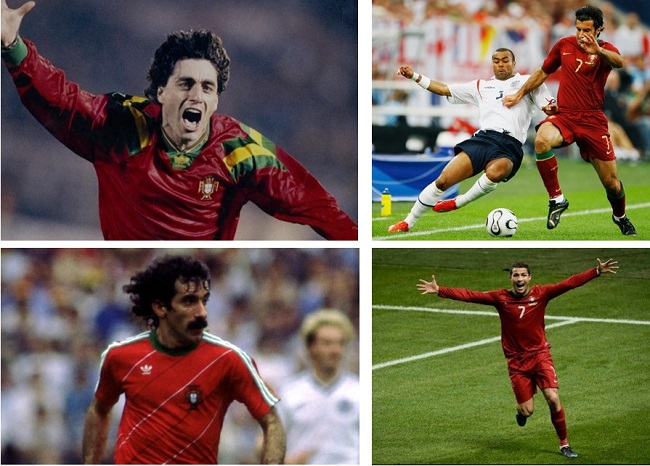 |
Hernâni Silva (28 caps)
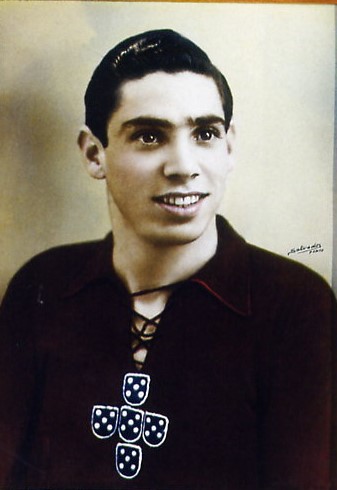 Of him it was said that he was one of the best footballers in the world in his time, and only his faithful allegiance to FC Porto and the international low profile of Portuguese football in the 1950s prevented him from getting the recognition he deserved.
Of him it was said that he was one of the best footballers in the world in his time, and only his faithful allegiance to FC Porto and the international low profile of Portuguese football in the 1950s prevented him from getting the recognition he deserved.
Hernâni was born in Águeda and started playing for the Dragons aged 19 in 1950. For fifteen years – bar a year at Estoril while he was serving in the army – he became the club’s banner player, much beloved by his team-mate Pedroto but also by iconic rivals such as Coluna or Eusébio.
He helped Porto to claim the 1956 and 1959 league titles and also won two cups, including Porto’s first ever double. At the same time, he was usually one of the few players outside of Lisbon called up for the national side and played alongside Travassos and then Coluna for almost a decade at the heart of Portugal’s midfield. A commanding presence, he was able to provide key assists and was also a notorious goalscorer, netting an average of a goal every two matches.
Bernardo Silva (102 caps and counting)
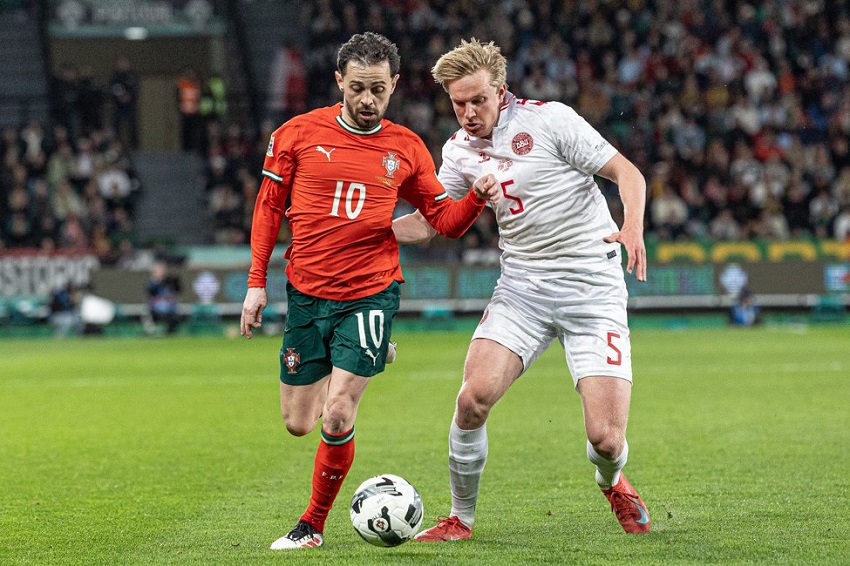
Fernando Chalana called him Mini-Messi even before he broke into Benfica’s first team, and despite Bernardo never reaching such heights, if there is anyone who represents the evolution and international recognition of the Portuguese midfielder over the last decade, it’s him. A Benfica fanatic, Silva grew up in the club academy dreaming of wearing Rui Costa’s iconic Number 10 shirt for years. Sadly for him, when he was called up to the first-team squad by Jorge Jesus, a manager famous for not trusting young promising players, he was forced to play as left-back. Benfica sold him without blinking while he was still a teenager to AS Monaco, and on the Riviera coastline, he thrived, striking a beautiful partnership with João Moutinho that allowed Leonardo Jardim’s side to strike out for glory.
After a brilliant display against Manchester City in a Champions League last-eight round, he was singled out by Pep Guardiola as the perfect successor for David Silva and was duly signed by the Citizens. Since then, he has become one of the greatest players in the history, not only of the Manchester club but also of the Premier League, playing a key role during City’s most dominant period of successive league trophies and a long-awaited Champions League win. With Portugal, although he failed to take part in the triumphant Euro 2016 campaign owing to injury, he has since become a key player for the squad under the tenure of both Fernando Santos and Roberto Martínez. He looks to 2026 as the perfect timing to drive Portugal to the Holy Grail of World Cup success, and perhaps to return to his beloved Benfica to enjoy the passionate crowds of Estádio da Luz singing his name once more.
Rui Costa (94 caps)
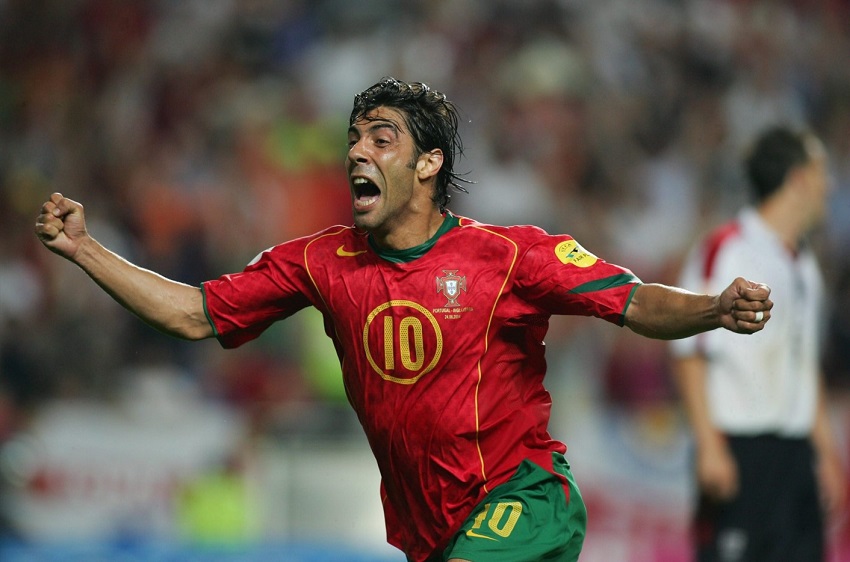
He was the prince of Portuguese football for more than a decade. One of the most versatile and charismatic players of his day, he was also one of the most naturally gifted Portuguese players ever. The ability to see passes no-one else could see or to score at decisive moments made him a star, but it was his commitment on the pitch that turned Costa into one of the most beloved players for every side he ever played for. The brightest Benfica youth team prospect, scouted by Eusébio himself, Rui Costa, was part of the celebrated Carlos Queiroz Golden Generation that claimed the under-20 World Cup, and he scored the decisive penalty in the 1991 final against Brazil, the first of many iconic moments in his career.
A Benfica legend by his late teens, he patrolled the attacking midfield of the Eagles for five seasons before finally being sold to Fiorentina. On the banks of the River Arno, Costa struck up one of the most iconic partnerships of Serie A’s history with Argentinean goalscorer Gabriel Batistuta, guiding the Viola not only to Champions League football but also claiming the Italian Cup as well. Only when the club went broke did he move on, signing for AC Milan where he remained a key figure in the first years of Carlo Ancelotti’s reign, winning his only Champions League medal in 2003. The rising youngster Kaká turned into a luxury back-up man, and so he decided to come back to his beloved Benfica.
By then, he had already left the national side, for whom he played for more than a decade at the highest level, starring at Euro 96, Euro 2000 and Euro 2004 alongside the ill-fated 2002 World Cup as the key man in Portugal’s midfield. The arrival of Deco precipitated his international retirement, but only after he scored one of Portugal’s most celebrated goals against England in the 2004 European Championship on home soil, at his beloved Estádio da Luz no less, in an epic quarter-final triumph. Another photo for posterity.
By Miguel Lourenço Pereira, author of “Bring Me That Horizon – A Journey to the Soul of Portuguese Football”.

